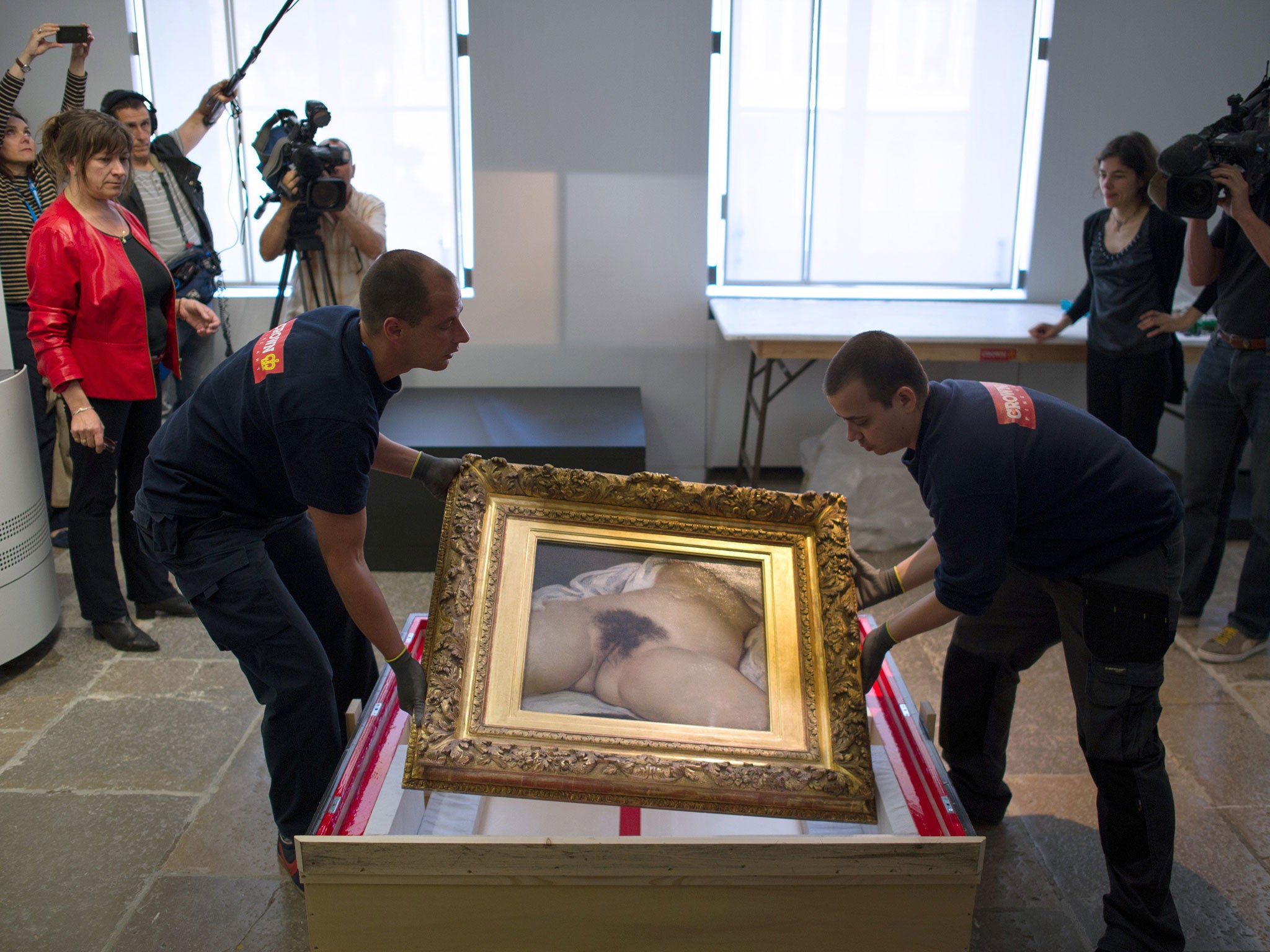French teacher demands €20,000 payout after Facebook bans post of Gustave Courbet painting for breaching nudity policy
Censored art lover sues for damages after his profile was removed from the networking site – which says the case must be heard in the US

Your support helps us to tell the story
From reproductive rights to climate change to Big Tech, The Independent is on the ground when the story is developing. Whether it's investigating the financials of Elon Musk's pro-Trump PAC or producing our latest documentary, 'The A Word', which shines a light on the American women fighting for reproductive rights, we know how important it is to parse out the facts from the messaging.
At such a critical moment in US history, we need reporters on the ground. Your donation allows us to keep sending journalists to speak to both sides of the story.
The Independent is trusted by Americans across the entire political spectrum. And unlike many other quality news outlets, we choose not to lock Americans out of our reporting and analysis with paywalls. We believe quality journalism should be available to everyone, paid for by those who can afford it.
Your support makes all the difference.Frédéric Durand-Baïssas says Gustave Courbet’s oil on canvas of a woman’s genitalia deserves to be shared. But Facebook disagrees and has removed his profile for breaching the social network’s nudity ban.
And so the battle over Mr Durand-Baïssas’s right to posting an image of the painting on the social network has continued for almost four years. Other Facebook users have posted Gustave Courbet’s The Origin of the World – only to be told to take down the painting. Now Mr Durand-Baïssas is demanding €20,000 (£14,000) in damages and the right to have his Facebook profile reinstated.
Key to the battle is where the case is heard. Mr Durand-Baïssas, an art enthusiast, wants the hearing to take place in Paris, where the Musée d’Orsay which houses The Origin is located.
Facebook has demanded the case be heard in California, appealing an earlier ruling ordering a French hearing.
Facebook disabled Mr Durand-Baïssas’ profile after receiving a complaint in 2011. The artwork, painted in 1886, was part of link he shared, redirecting to a documentary on the history of The Origin.
The teacher told Europe 1, the radio station, that he was “fighting to defend Courbet, condemned by the Americans”. Speaking to The Independent, his lawyer, Stéphane Cottineau, said his client felt he was a victim of “prejudice” and had been treated “like a pornographer”. Securing a French hearing, Mr Cottineau said, was the “first of David’s victories against Goliath”.
But Facebook says all litigation should take place in California, where it is headquartered – a policy that would make it difficult for individuals to take it to task. Some 82 per cent of its daily active users are based outside the US and Canada.
The company first ruffled French feathers in 2013 when it forced the Jeu de Paume photography museum in Paris to take down a post showing a portrait of a woman with her breasts exposed, taken by Laure Albin Guillot in 1940. Their guidelines, updated in March, state that nipples on a female breast are not allowed unless they are “actively engaged in breastfeeding”.
But Facebook adds that while nudity is banned, “photographs of paintings, sculptures, and other art that depicts nude figures” are allowed. A Facebook spokesman was quoted as saying posts of Courbet’s masterpiece “wouldn’t pose a problem today”. That was quickly put to the test when websites superimposed Facebook “like”icons around Courbet’s representation of the female form.
Facebook has 1.4 billion active users a month. Any complaints are sent to moderators, who decide whether or not to delete the account or the material alone.
Join our commenting forum
Join thought-provoking conversations, follow other Independent readers and see their replies
Comments